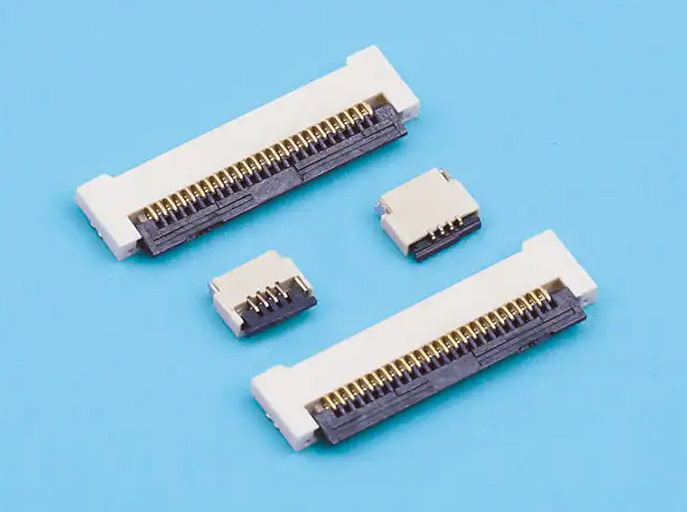Exploring the Electrical Characteristics of Flat Connectors for Optimal Performance

Flat connector is ubiquitous in the world of electronics, serving as the linchpin for secure and efficient signal transmission. Their electrical performance is a complex interplay of various factors that contribute to the overall reliability and functionality of electronic devices. This article seeks to dissect the electrical performance of flat connectors, highlighting their critical role in maintaining the integrity of electrical connections.
The electrical performance of flat connectors is a multifaceted attribute that encompasses several key parameters. These include contact resistance, insulation resistance, and dielectric strength, all of which are essential for ensuring the connectors' ability to transmit electrical signals without significant loss or distortion. Flat connectors are designed to minimize contact resistance, which is the resistance between the mating surfaces of the connector. High contact resistance can lead to increased power loss and heat generation, which can be detrimental to the performance and longevity of the connectors and the devices they serve.
Insulation resistance is another critical aspect of the electrical performance of flat connectors. It refers to the ability of the connector's insulating materials to resist the flow of current between conductors. A high insulation resistance is crucial for preventing unwanted current leakage, which can lead to short circuits and other malfunctions. Flat connectors are often subjected to stringent testing to ensure that they meet the required insulation resistance standards, thereby guaranteeing the safety and reliability of the devices they are used in.
Dielectric strength is the third major component of the electrical performance of flat connectors. It is a measure of the maximum voltage that the insulating material can withstand before electrical breakdown occurs. Flat connectors must be able to handle the voltage levels they are exposed to without compromising the integrity of the insulating material. This is particularly important in high-voltage applications where the risk of dielectric failure is higher.
In addition to these primary parameters, the electrical performance of flat connectors is also influenced by other factors such as signal integrity, crosstalk, and electromagnetic interference (EMI) shielding. Signal integrity is the ability of the connector to transmit signals without distortion, which is crucial for high-speed data transmission. Crosstalk refers to the unwanted coupling of signals between adjacent conductors, which can lead to data errors and reduced performance. EMI shielding is the ability of the connector to protect the internal signals from external electromagnetic interference, which is essential in environments with high levels of EMI.
The design and materials used in flat connectors play a significant role in their electrical performance. Connectors made from high-quality materials with low resistivity and high dielectric strength are more likely to offer superior electrical performance. Additionally, the design of the connector, including the contact geometry and the arrangement of the conductors, can impact signal integrity and crosstalk.
In conclusion, the electrical performance of flat connectors is a critical factor that affects the overall performance of electronic systems. By understanding the various aspects of their electrical performance, including contact resistance, insulation resistance, dielectric strength, signal integrity, crosstalk, and EMI shielding, engineers can select the most appropriate flat connectors for their specific applications. This ensures not only the efficient operation of the devices but also their reliability and longevity in the face of various electrical challenges.
1、 CKT: 13Pin to 71Pin
2、 Current rating: 0.2A AC/DC
3、Voltage rating(max): 30V, AC/DC
4、Working Temperature: -25°C~+85°C, (Including temperature rise in applying electrical current)
5、Contact resistance:Initial value ≤40mΩ After environmental testing ≤60mΩ
6、Insulation resistance:≥50MQ
7、Withstand voltage:500VAC(rms)
8、Applicable PCB board thickness:1.6mm to 2.0mm
- Art
- Causes
- Crafts
- Dance
- Drinks
- Film
- Fitness
- Food
- Games
- Gardening
- Health
- Home
- Literature
- Music
- Networking
- Other
- Party
- Religion
- Shopping
- Sports
- Theater
- Wellness


